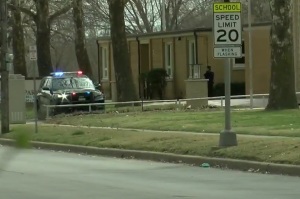Panic After Bombings in Northern Iraq, Christians Fleeing
An increase in violent activity, including bombings in Northern Iraq, is forcing Christians to flee the region in panic, even though the area is considered one of the safest in the country until recent developments.
The growing number of attacks in the region include a Sept. 22 suicide bomb that went off at the home of Christian politician Emad Youhanna in Rafigayn, which injured 19 people including three of Youhanna's children, World Watch Monitor reported. Al-Qaeda has claimed responsibility for a number of other recent attacks, while Christians in surrounding villages have complained about harassment from police.
"It remains urgent to pray for the future of Christianity in this country," watchdog group Open Doors USA said. "If the present trend continues, there might be no Christian left in the whole of Iraq by 2020." The group added that although a number of Christians are still choosing to stay, their concern over safety is growing, and they may be left with little choice but to leave.
Other religious groups have also not been immune from attacks: 15 people were killed last week when another suicide bomber attacked a village in Northern Iraq, Reuters reported, this time targeting the minority Shabak community, who are predominantly Shi'ite Muslim.
Iraq finds itself in fourth place in Open Door's World Watch List, which examines the persecution Christians face around the world.
"Christians in Iraq are on the verge of extinction. Large numbers of persecuted Christians have fled abroad or to the (until recently) safer Kurdish region, where they face unemployment and inadequate schooling, medical care and housing. The church faces many challenges – members being killed or abducted, and a lack of capable leaders," the list says.
Northern Iraq has been an important camp spot for the millions of refugees fleeing Syria's civil war. Christian missionary organizations like World Compassion Terry Law Ministries have been active in the region, helping with humanitarian efforts as well as sharing the message of Christ with the refugees, many of whom have responded positively.
"What I had been taught is that not all Muslims are radicalized and they hate Americans," Eric English, executive director of Strategic Planning for World Compassion, previously shared with The Christian Post. "But what I learned from being there is that the vast majority of Muslims are Muslims by birth, and they are just normal people who work normal jobs, like you and I do, and they don't hate Americans – but the radicalized minority controls the country and the environment."
"They were very open to the Gospel because they were not radicalized," he added.





























